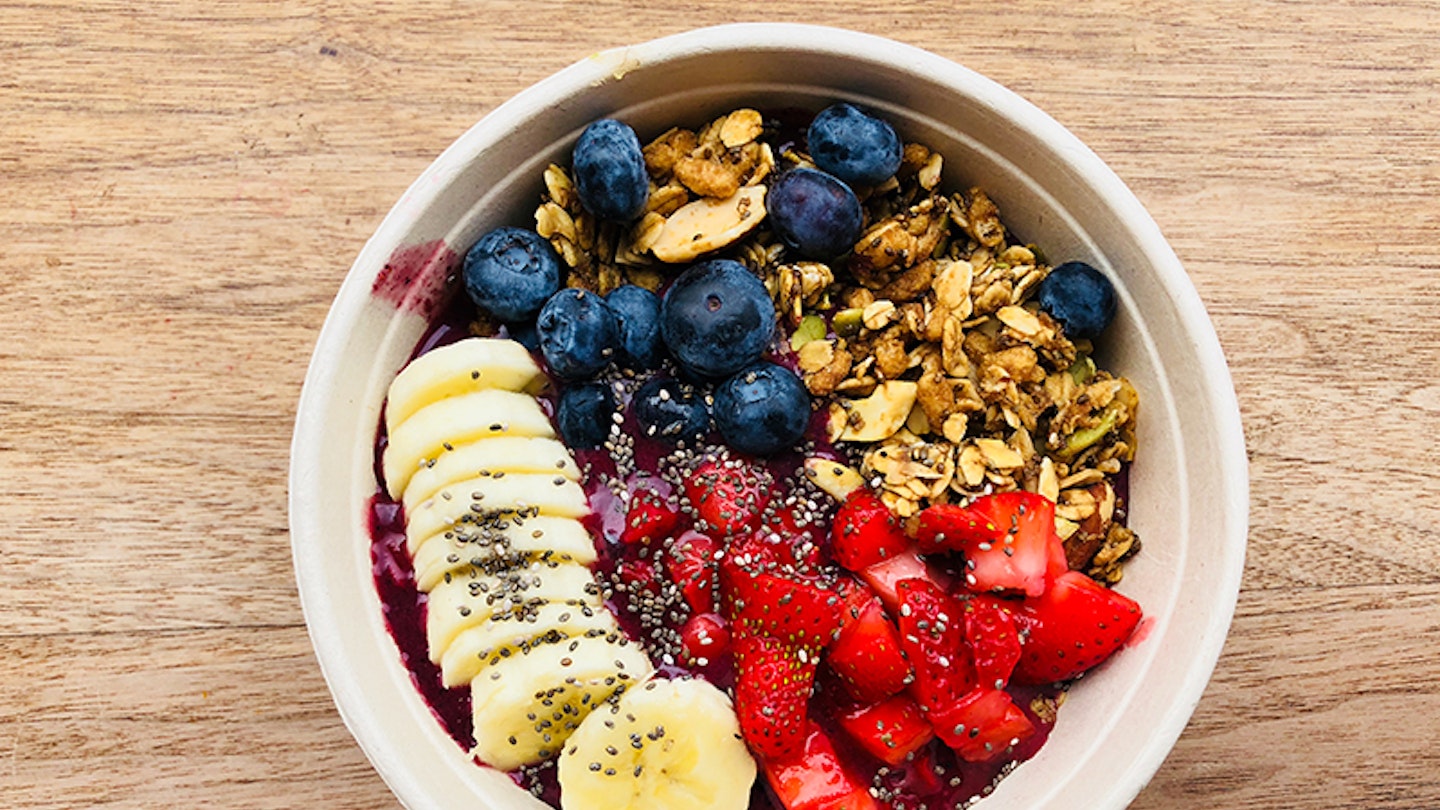When you're pregnant, it is vital for both you and your growing baby that you get all the nutrients that you need. Not only do you have to consider what you can't eat during pregnancy but there are certain superfoods that you can add to your diet that might help you along your way.
Your foetus’s brain starts forming just three weeks after conception and the food you eat plays a vital role in its development. A baby’s brain undergoes rapid changes between weeks 24 and 42 of pregnancy, with significant brain growth occurring from 34 weeks.
A wide range of nutrients are needed for this development, so it is best if you eat a varied and healthy diet. However, some foods really stand out as nutritional superstars – and you’ll find them readily in local shops and supermarkets.
Our expert, Victoria Wells, specialises in pregnancy nutrition at The Fertility Rooms Clinic and she gives us guidance on what nutritious superfoods we can eat while pregnant to boost our growing baby’s grey matter. It helps that these healthy eating ideas taste great too!
10 Superfoods to eat during pregnancy
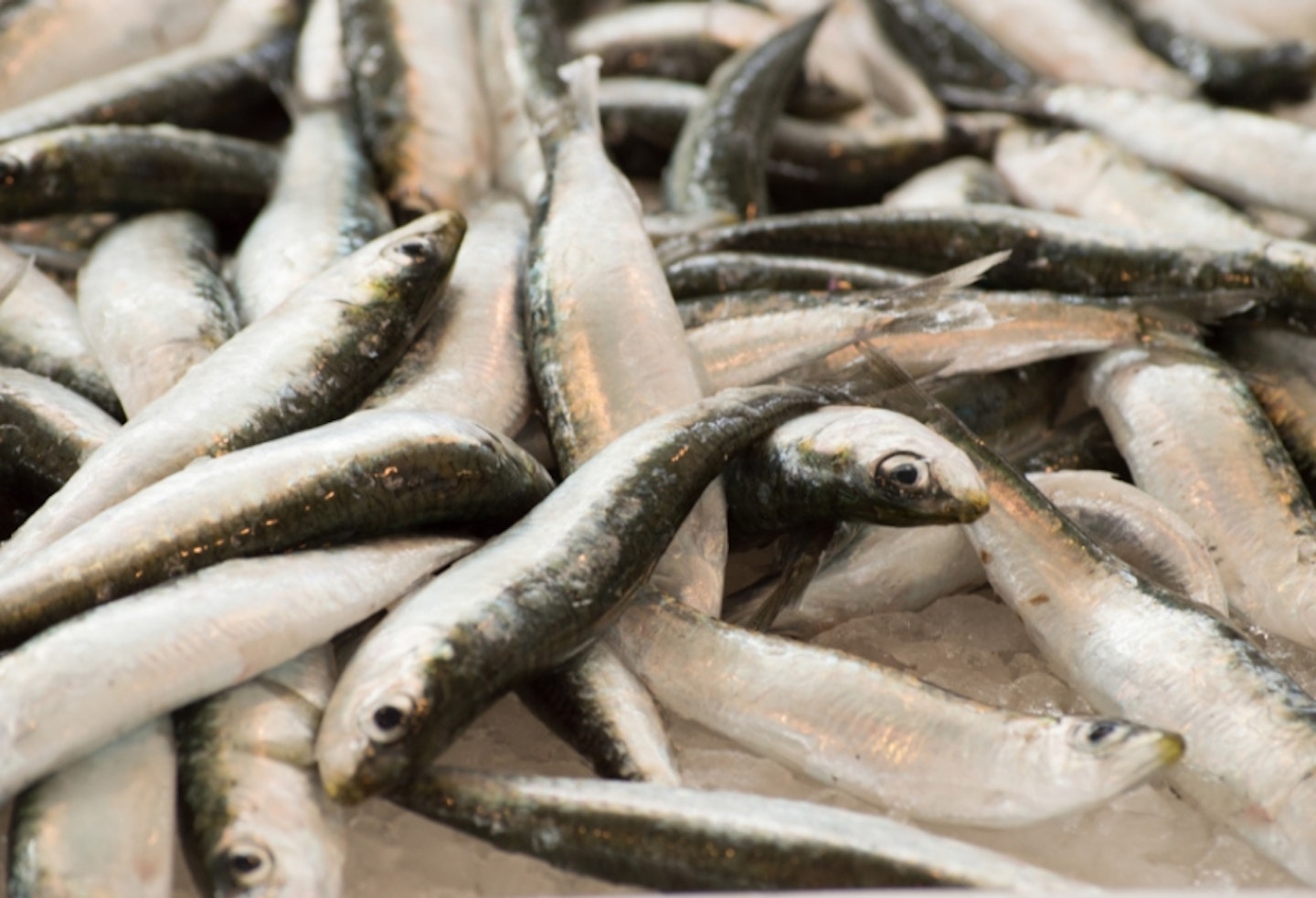 1 of 10
1 of 101) Sardines - Super-nutrient: DHA
Sardines, like other oily fish, are a rich source of docosahexaenoic acid (DHA), which is important for helping the brain and central nervous system mature. Sardines are also less likely to be contaminated with mercury than other fish. They are good for vitamin D.
What you need: Pregnant women are advised to consume at least two portions of fish per week, one of which should be oily. Pan-fry or grill fresh sardines and serve with a zesty tomato, pepper and cucumber salsa.
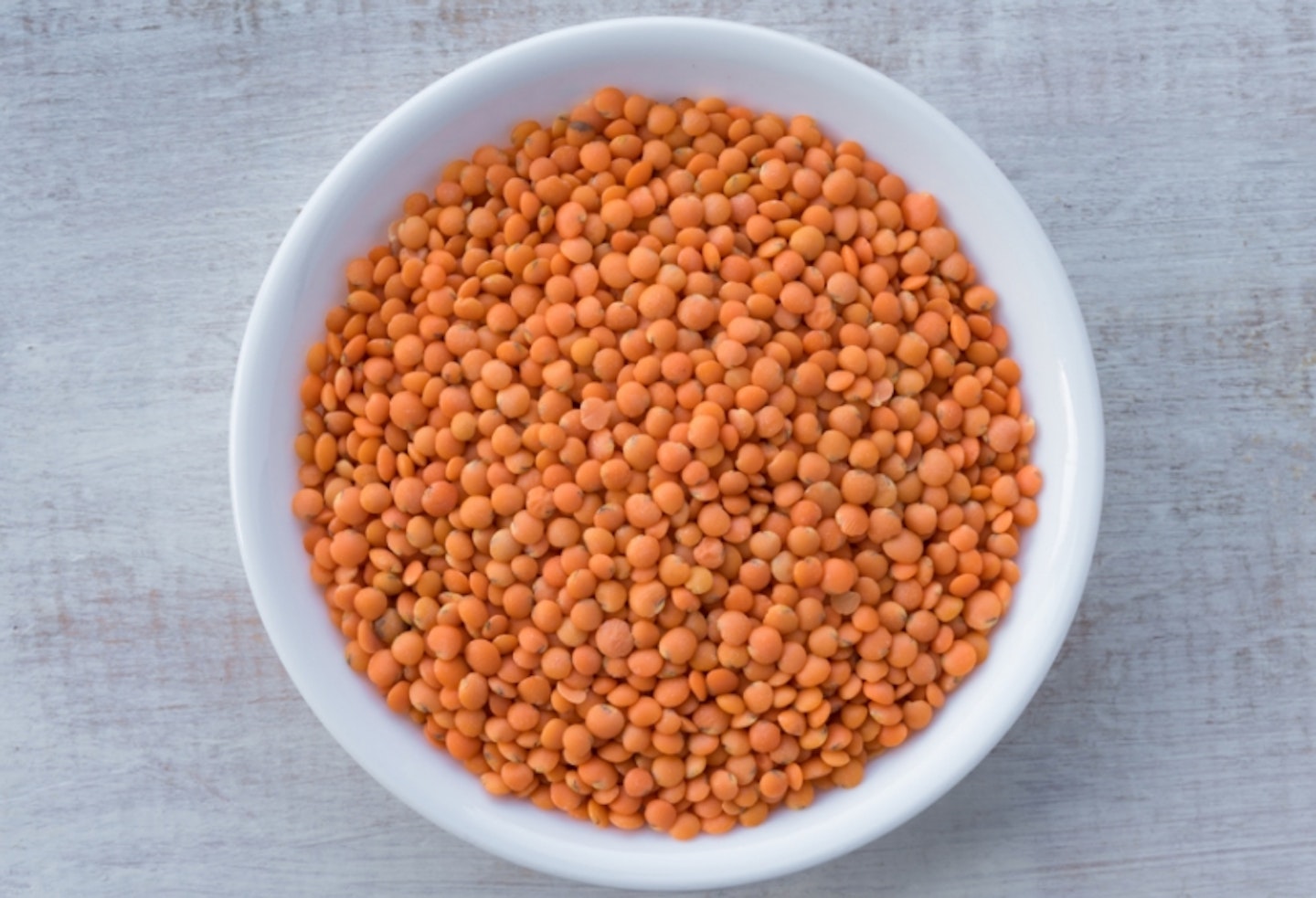 2 of 10
2 of 102) Lentils - Super-nutrient: Iron
Iron is crucial, affecting the production of brain chemicals and the formation of myelin, which is vital for swift and accurate message sending in the brain. Too little iron can lead to impaired mental development.
What you need: 14.8mg of iron per day during pregnancy. A serving of lentils provides 6.6mg. Combining lentils with vitamin C boosts the iron available to your body, so add butternut squash, peppers, cabbage or tomatoes to lentil soup for a balanced serving.
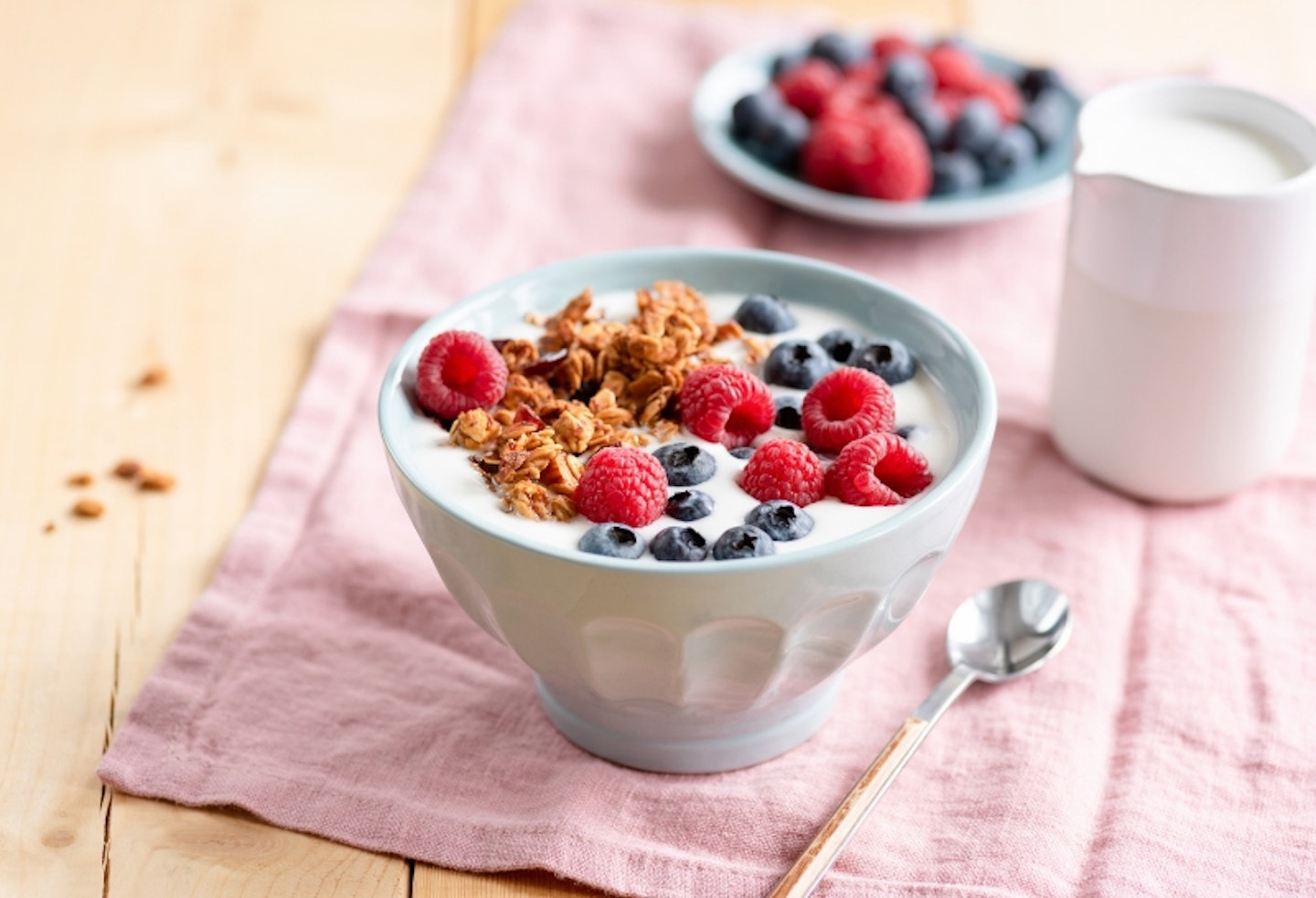 3 of 10
3 of 103) Greek yoghurt - Super-nutrient: Iodine
The World Health Organisation (WHO) warns that iodine deficiency during pregnancy is the leading cause of preventable mental health problems. All yoghurt is a great source of iodine. Greek yoghurt has more protein, which is key to preventing low birth weight.
What you need: 140mcg of iodine a day is recommended. A 150g portion of Greek yoghurt provides 50-100mcg. Add a drizzle of honey, nuts and seeds for breakfast.
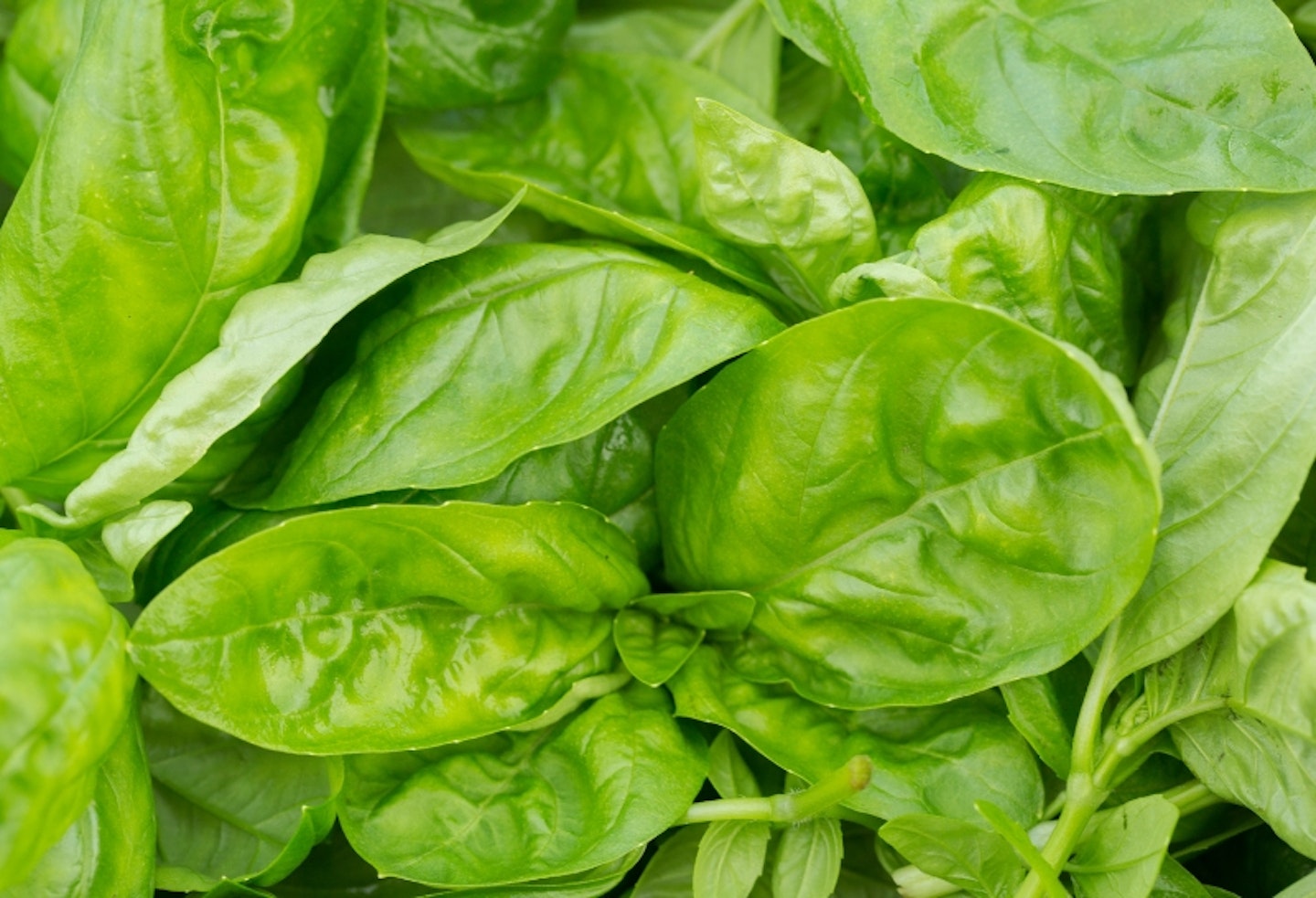 4 of 10
4 of 104) Spinach - Super-nutrient: Folate
Your baby requires the naturally occurring folate in spinach for the production of new DNA and to regulate cell metabolism (on top of your folic acid supplement). Its antioxidants also protect the baby’s brain tissue from damage.
What you need: 400mcg of folate per day is recommended. A 180g portion of cooked spinach provides 262.8mcg, and an 80g raw portion provides 154mcg. Light steaming increases the uptake of folate, but be sure not to overcook it. Adding spinach at the last minute to a vegetable stew wilts the spinach and retains vital nutrients.
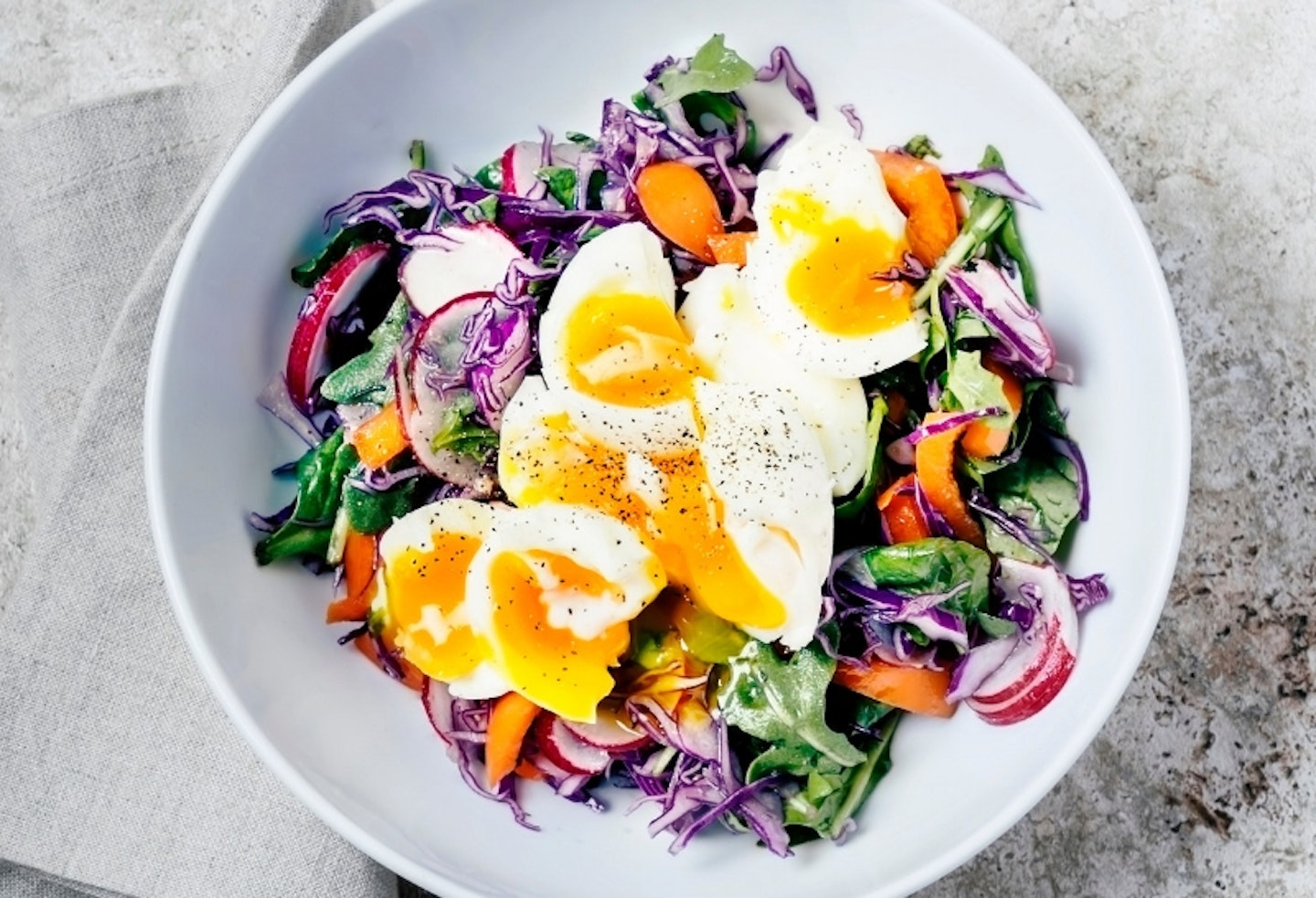 5 of 10
5 of 105) Eggs - Super-nutrient: Choline
Eggs are a great source of protein and iron, which are both vital for brain development. They gain superfood status for their high levels of choline, which is essential in developing memory and a life-long ability to learn.
What you need: 450mg of choline per day. The richest source is egg yolks – one hard-boiled egg gives you 113mg. Add hard-boiled eggs to a salad of mixed leaves and spinach sprinkled with dry-roasted seeds.
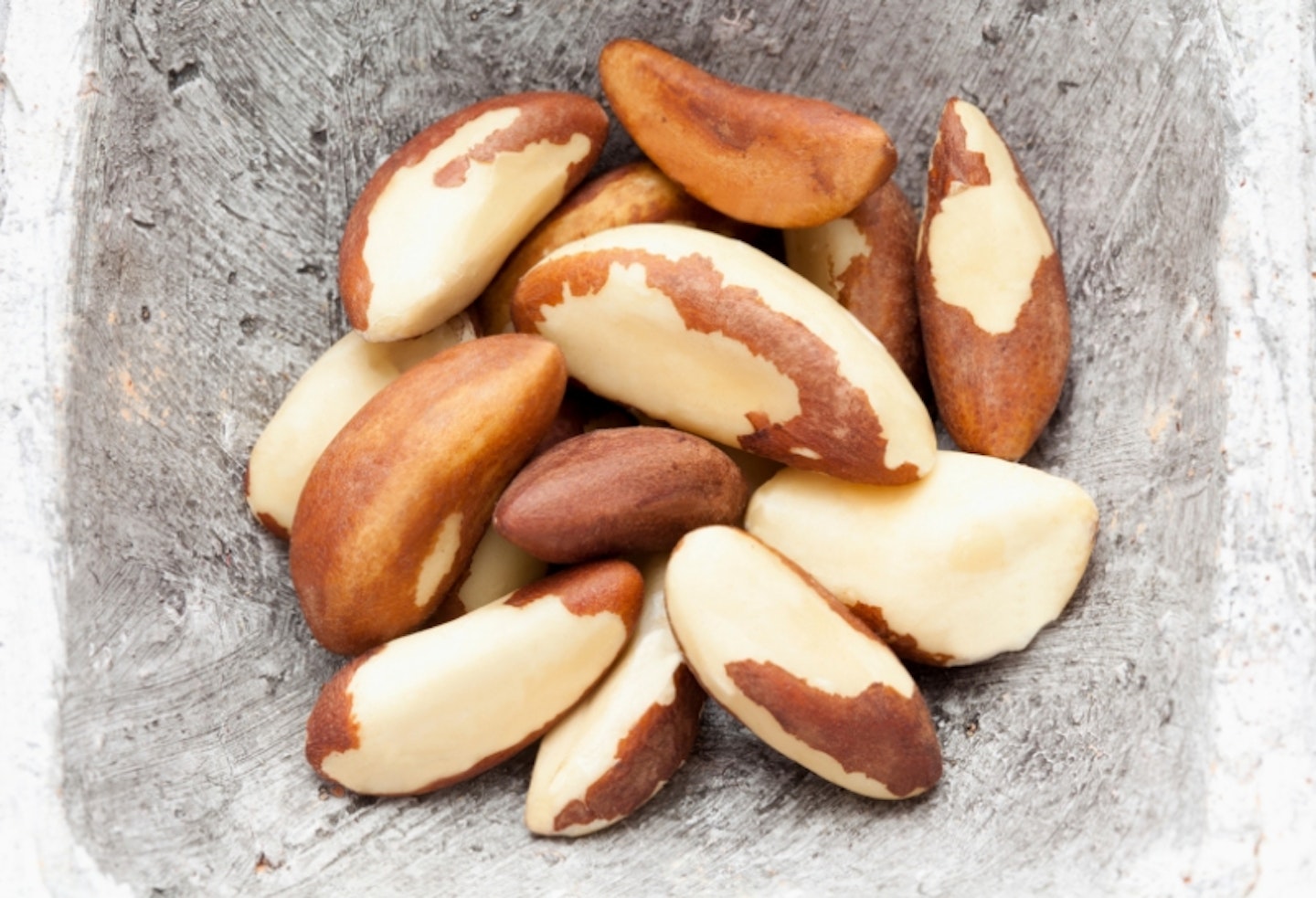 6 of 10
6 of 106) Brazil nuts - Super-nutrient: Selenium
A selenium deficiency can alter brain development in your baby. Brazil nuts are an excellent source of selenium and are also rich in monounsaturated fats.
What you need: 60mcg of selenium per day – just one Brazil nut a day will do the trick. Pulse a handful of Brazil nuts with tarragon, garlic, olive oil and lemon zest to a coarse paste. Spread over steamed broccoli.
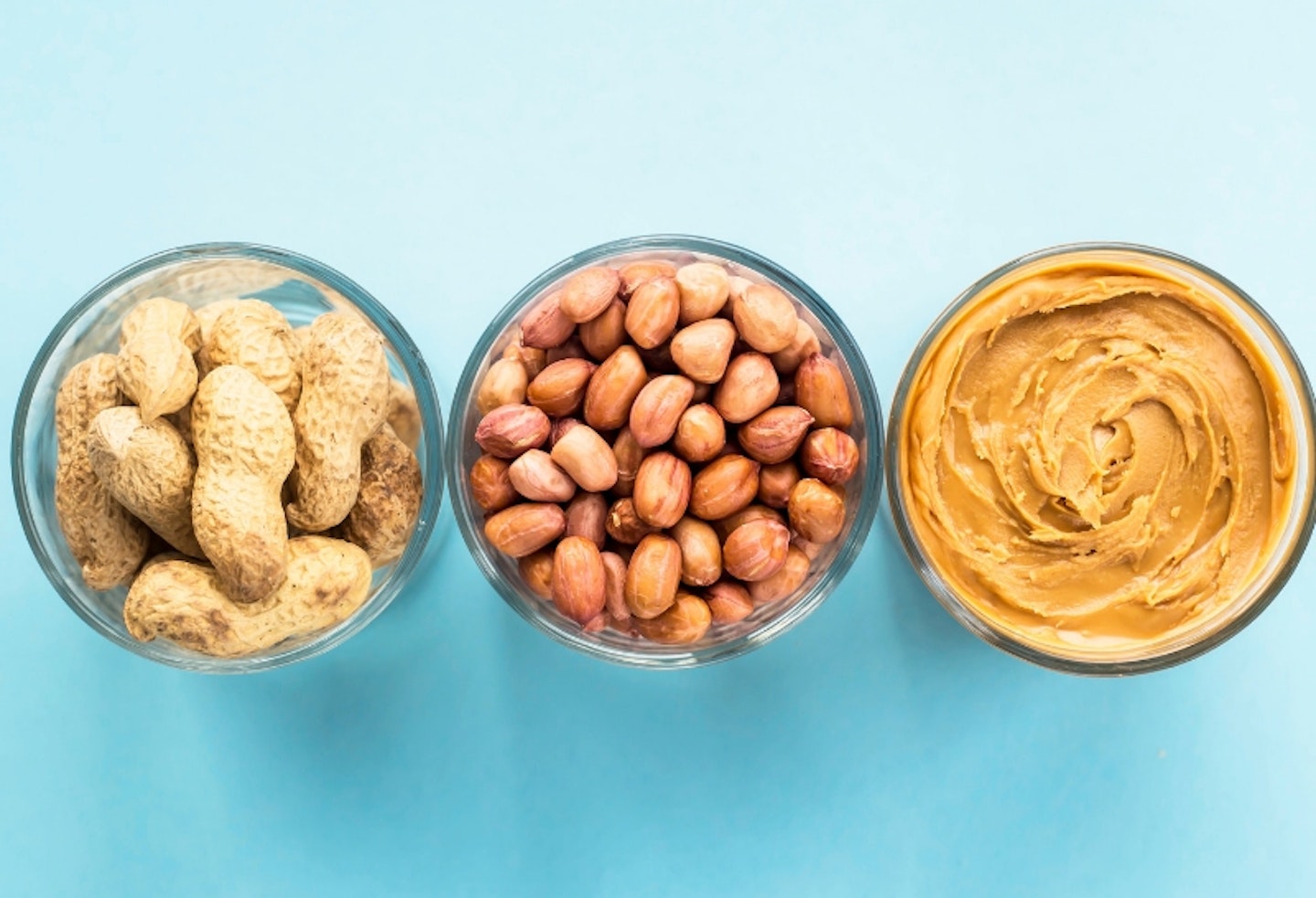 7 of 10
7 of 107) Peanuts - Super-nutrient: Vitamin E
Peanuts are a great snack food during pregnancy, being rich in protein, niacin, monounsaturated fats and folate. Their high vitamin E content supports DHA and also protects brain cell membranes. Choose unsalted roasted or natural peanuts with the skins intact for a hit of antioxidants.
What you need: 3mg of vitamin E a day – a serving of natural (no added oil) peanut butter provides just that. Spread natural peanut butter onto oatcakes as a convenient and tasty snack.
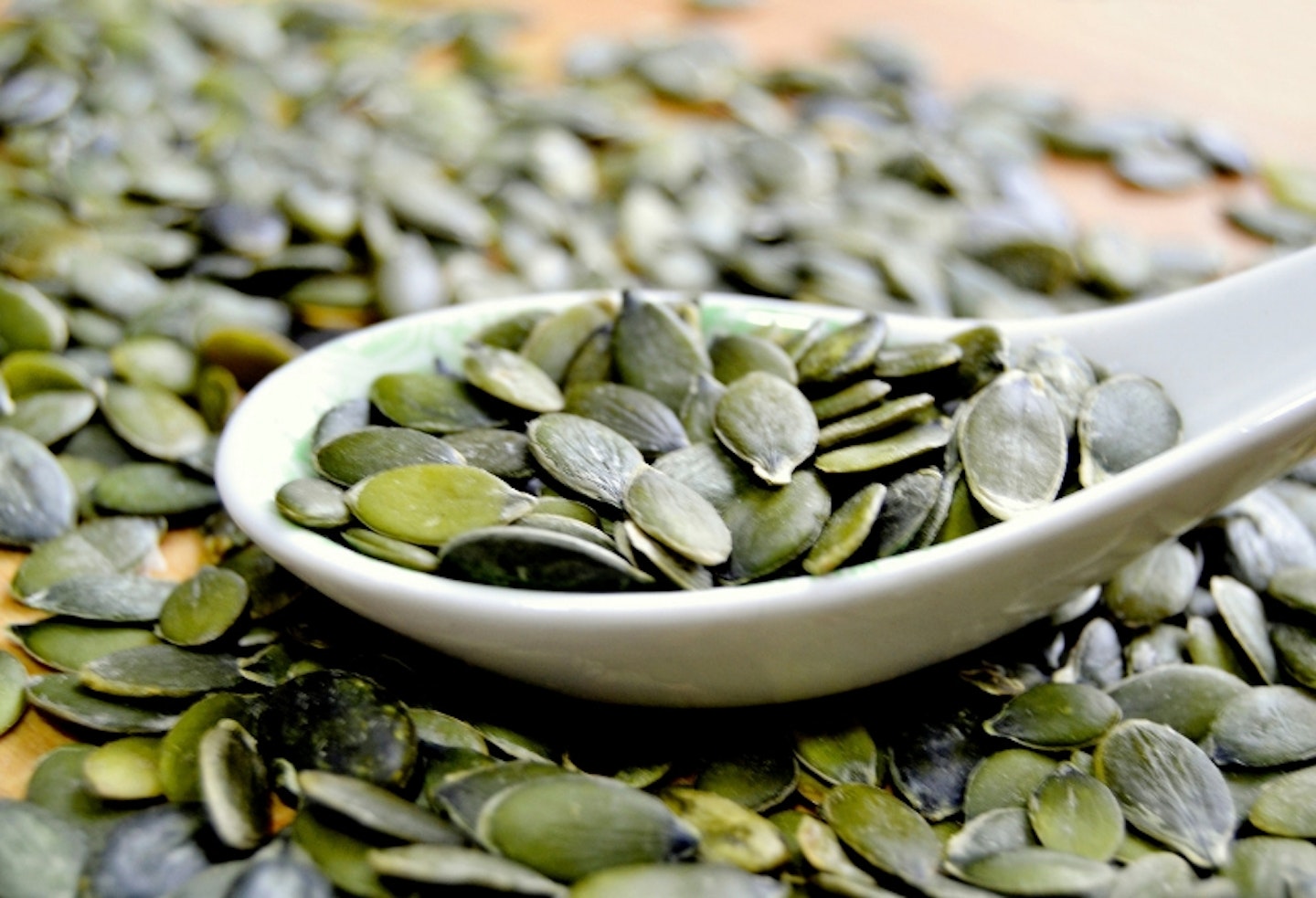 8 of 10
8 of 108) Pumpkin seeds - Super-nutrient: Zinc
Pumpkin seeds are an excellent natural source of zinc, which is vital for building the structure of the brain and also activating the areas of it that receive and process information. The zinc is concentrated in a thin layer adjacent to the shell, so eat them unshelled.
What you need: 7mg of zinc per day during pregnancy. Whole roasted, unshelled pumpkin seeds contain about 10mg of zinc per 100g. They’re great as a snack or blend them with leafy greens to make a pesto sauce for pasta.
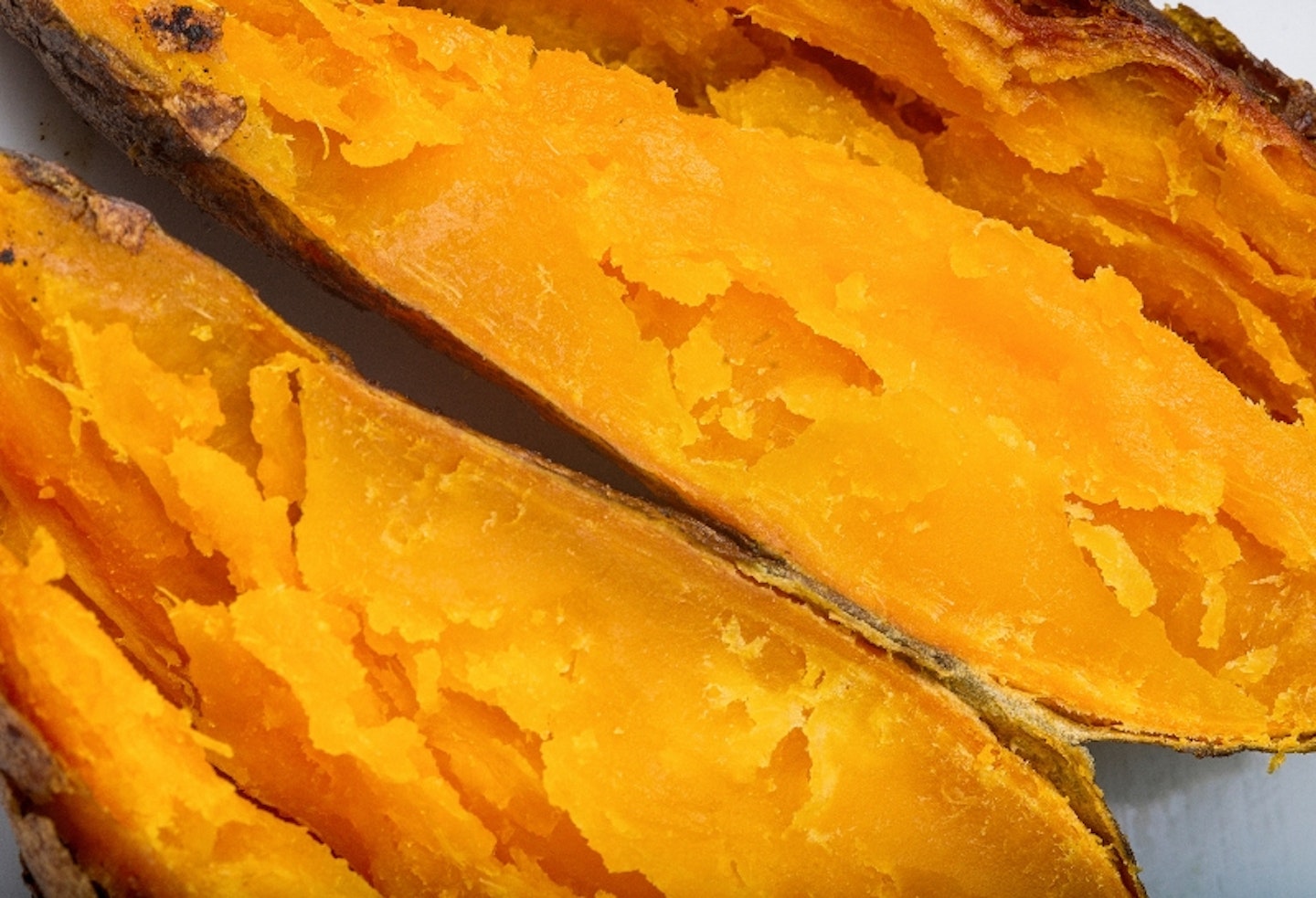 9 of 10
9 of 109) Sweet potatoes - Super-nutrient: Beta-carotene
Beta-carotene is converted by the body into vitamin A, which is required for the development of the baby’s central nervous system.
What you need: 700mcg per day is recommended, and a medium-sized sweet potato provides your daily quota. Sweet potatoes with orange flesh have the highest concentration of beta-carotene. Bake them whole for 30 minutes, drizzle with butter and also eat the skin.
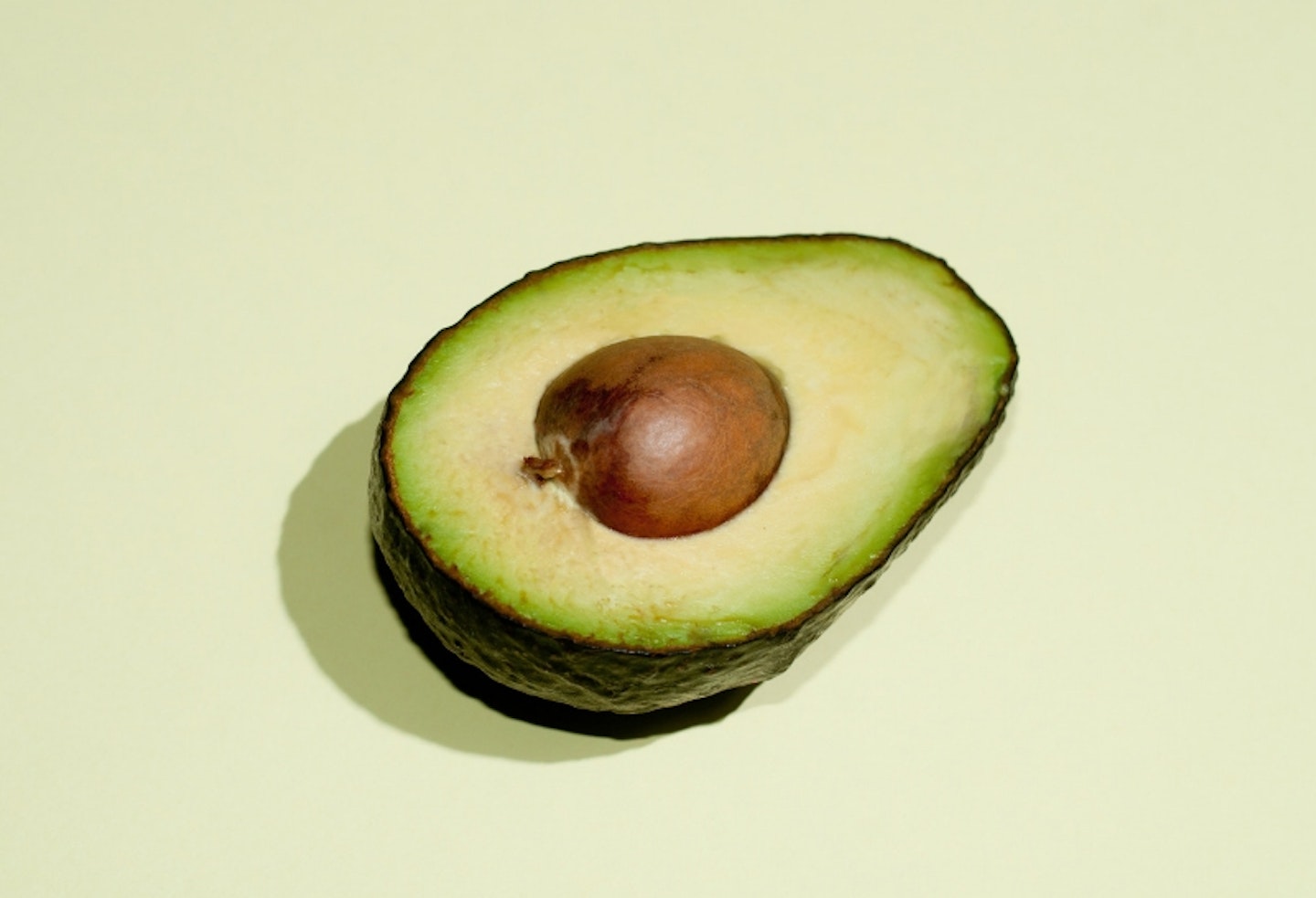 10 of 10
10 of 10Avocados - Super-nutrient: Monounsaturated fatty acids
Fat makes up around 60% of the developing brain. Avocados contain high levels of oleic acid which helps to create and maintain myelin, a fatty protective coating around nerves in the central nervous system.
What you need: 25-35% of your daily calories should come from fat, ideally monounsaturated fat. Peel and add to salads or slice into sandwiches. Alternatively, whisk three avocados with one tomato, lime juice and a small onion for a punchy guacamole dip.
